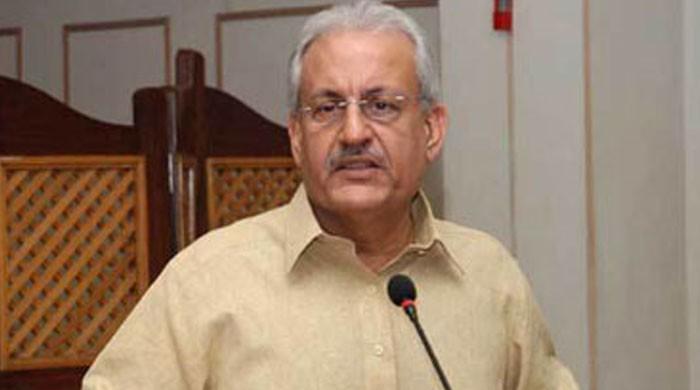Chairman Senate questions Raheel Sharif's appointment to Islamic coalition force
January 09, 2017

ISLAMABAD: Chairman Senate Raza Rabbani on Monday asked the defence minister to provide details of former army chief General (retd) Raheel Sharif's appointment as head of a Saudi-led 39-nation Islamic military alliance to fight terrorism.
On Friday, Defence Minister Khawaja Asif confirmed that the former army chief's appointment to the 39-nation coalition force. The minister said the decision to appoint the retired general, who spearheaded a campaign against militants at home, was taken with the consent of both the Army's General Headquarters and the government of Pakistan.
The Senate chairman today said the concerned officials should inform the House about the rules under which a retired officer had taken up such a job. He sought a briefing on the matter from the defense minister on Tuesday.
"Whether Gen Sharif sought permission prior to taking up the job or was an NoC issued to him?" Rabbani asked. "And, if an NOC was issued, then who issued it?"
He inquired whether the federal government was taken into confidence on the appointment of the former army chief.
The Senate chairman also demanded the advisor on foreign affairs to brief on the possible implications of the appointment.
Islamic coalition formed to combat terrorism
News of the alliance's formation was first reported in December 2015, with reports of Middle Eastern, African and Asian states including Saudi Arabia, Gulf states, Pakistan, Egypt being part of the then 34 nation coalition.
The objective of the Saudi-led alliance was "to coordinate and support military operations to fight terrorism".
Saudi Arabia, Pakistan, Turkey, United Arab Emirates, Bahrain, Bangladesh, Tunisia, Sudan, Malaysia, Egypt, Yemen and other Muslim countries are said to be part of the coalition. The Joint Command Centre, headquarters of the military alliance is located in Riyadh.
The coalition would tackle "the Islamic world's problem with terrorism and will be a partner in the worldwide fight against this scourge" announced Saudi defence minister and deputy crown prince Mohammad bin Salman Al Saud at a press conference in Riyadh in 2015.
Arrangements would be made for "coordination with friendly peace-loving nations and international bodies for the sake of supporting international efforts to combat terrorism and to save international peace and security", he had said.
Salman told reporters that the campaign would "coordinate" efforts to fight terrorism in Iraq, Syria, Libya, Egypt and Afghanistan, but offered few concrete indications of how military efforts might proceed.
"There will be international coordination with major powers and international organisations ... in terms of operations in Syria and Iraq. We can't undertake these operations without coordinating with legitimacy in this place and the international community," bin Salman said without elaborating.
Asked if the new alliance would focus just on Islamic State (Daesh), bin Salman said it would confront not only that group but "any terrorist organisation that appears in front of us".











